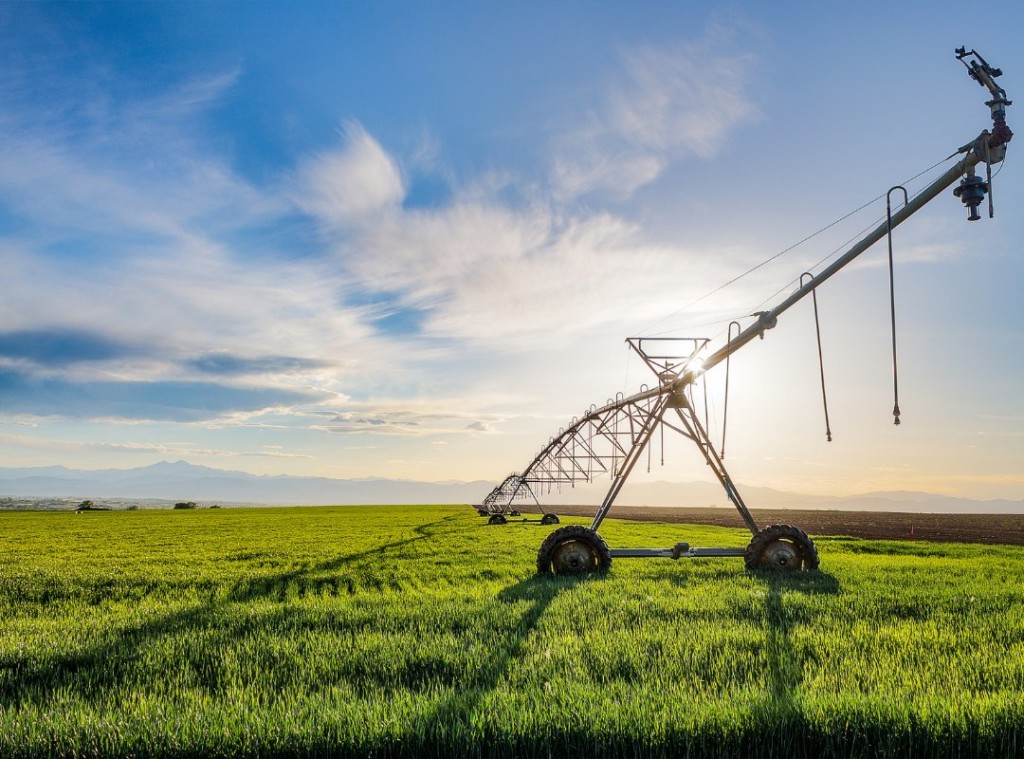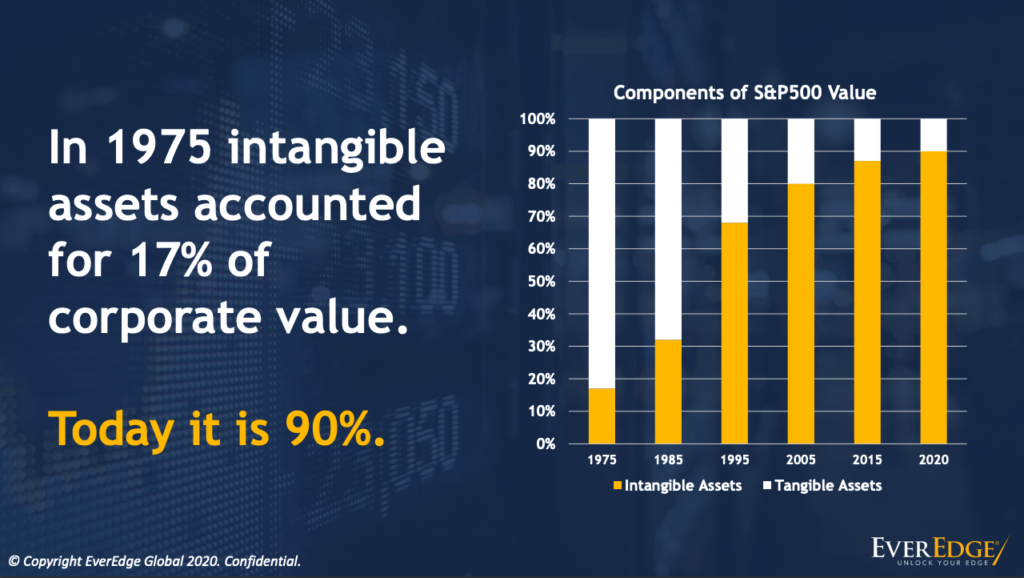Why agrifood businesses need to value their intangible assets
EverEdge Managing Director, Michael Masterson, gives us the lowdown on what intangible assets really are and how to find and value your company’s ‘secret sauce’ with SWAN Systems CEO, Tim Hyde.

Companies must value their intangible assets to ensure they can pivot fast and avoid the tsunami of businesses expected to hit the wall in a post-COVID world.
That’s the prediction of Michael Masterson, Managing Director of EverEdge, a global advisory and transaction firm, specialising in helping companies to unlock the value of their intangible assets and reduce risk.
“It’s actually not that hard – the first thing you do is look at where the revenue or the margins are coming from and start to understand what gives your company the ability to generate a better return than their competitors,” Michael explained.
“This is different to the classic accounting standard which is about the ‘what’ not the ‘how’. We see intangibles as anything that’s non-physical, things like data, brand, systems, relationships, confidential information – the ‘secret sauce’ that gives you the edge or competitive advantage.”
Michael said digital companies with strong intangible assets have weathered the COVID-19 pandemic better due to their ability to pivot and move quickly in highly illiquid markets, whereas tangible asset-oriented companies are not doing as well.
The valuation, he said, starts with the brand.
To paint a rich picture of the largely unknown world of intangible assets, we dive deep into conversation with Michael, Tim Hyde, CEO and Founding Director of Swan Systems and Massimo Garbuio, Associate Professor of Sydney University’s Business School to explore the risks, rewards and real-life viewpoints.
Understanding your company’s brand value is everything
“We do quite a bit with companies to get their brand right because ultimately that’s where all the value gets captured,” said Michael. He used Apple as an example.
“The brand started off with three people and zero worth, but over time as they launched products and services and developed networks, the value of the brand ratcheted up.
“Tangible assets can’t scale at exponential growth rates, only intangible assets can, as companies get ahead of their competitors through knowledge, know-how, systems, processes and networks,” said Michael.

Award-winning Perth agritech startup, SWAN Systems worked with EverEdge to identify intangible assets in their business, which provides all-in-one water and nutrient irrigation management software to help users optimise outputs for better yields at lower cost, through an online data analytics platform.
RELATED: Innovative plastic mulch alternative set to increase water efficiency by 30%
Founded by Western Australian farmers in 2016, SWAN Systems was named the 2020 overall winner from 15 global finalists in the agritech category of FoodBytes!, an international program run by Rabobank to showcase food and agritech startups to corporate leaders, investors and the wider market.
The judges awarded SWAN Systems for its cutting-edge precision irrigation and fertiliser platform. Its technology transforms historic, current and predictive data from multiple sources into actionable insights – guiding users, particularly farmers to apply the right amount of water and nutrients, at the right time.
Why valuing intangible assets, like data, changes your mindset
CEO and Founding Director of SWAN Systems, Tim Hyde said identifying the components of the company’s intangible asset value was “a very exciting process”.
“Once we identified each component of assets like our data, the data we create, our software, patents, brand, know-how and relationships, we could then build strategies for how to manage them, including how to manage for competition and how to manage in case of an exit,” said Tim.
The company has more than 70 relationships with hardware and data providers from Australia to Israel, and these account for one-third of SWAN’s intangible assets.
“It’s understanding that these relationships are an intangible asset and have to be managed, whether through organising regular meetings or delivering outcomes or putting some formalities around that. Ultimately, our customers get the best value by us having a solid relationship, that’s their advantage,” explained Tim.
Michael agreed. “You can’t manage what you don’t know you have. It’s hard to actually work out that these are even an asset because they’re not typically written down anywhere, they’re often ignored,” said Michael.
“The moment you start treating them as an asset, all of a sudden, you start thinking, who needs to know that information? And it changes your entire psyche around how to manage these. One of our other clients, Rhino-Rack, now has the first chief intangible asset officer.
“For us, the challenge is often about working out, what is the secret sauce that makes a client special? And when I saw the impact that Tim’s business was having on the environment, SWAN’s ability to use around 20% less water to deliver better yields, I thought that was incredible.”
Lessons to be learned – why investors care about intangible assets
Michael shared a US statistic to illustrate the importance of measuring and managing the value of intangible assets: “In 1975, they accounted for 17% of company value, and in 2021, they account for 90% of the company value.”
RELATED: What is impact investing and why it’s not charity
“In 1975 we hadn’t entered the digital age though and since then we’ve seen the advent of online companies like Amazon, Google, Facebook, Instagram etc. But the second thing is that US companies were offshoring their balance sheet to China to find a low-cost base, and they didn’t just send over the tangible assets like the plant, the equipment, the machinery – they also sent the intangible assets.
“Now the US and Australia are bringing manufacturing back onshore because they’ve realised that it’s often very, very difficult and sometimes impossible to protect these assets, once you lose your ability to control them.”

EverEdge Global Presentation – Intangible assets growth since 1975
Investors also want more information about the value of the company, because as Michael said, “people won’t pay for what they don’t understand”.
“Intangibles are normally the first asset to dissipate when a company goes into a negative event. It’s not that the code disappears but often the company hasn’t formulated the development notes around their code, so when the company goes to try and sell its code or the receiver or the liquidator does, then they don’t know how to value it.
RELATED: Mentoring the next wave of Australia’s agrifood tech entrepreneurs
“One of the more famous Australian examples was when Dick Smith went under, Kogan bought the entire Dick Smith database for $5,000.
“If you did a back-of-the-envelope calculation, you could’ve easily added one, probably two zeros to that number. Dick Smith wasn’t valuing the database as an asset because they didn’t recognise it as an asset, but Kogan definitely knew it was and has done incredibly well out of it.”
Enjoyed this story? Want to learn more about the Asia Pacific region’s innovative agrifood tech ecosystem? Sign up for our newsletter here and receive fresh stories about global leaders, farmers, startups and innovators driving collaborative change.
